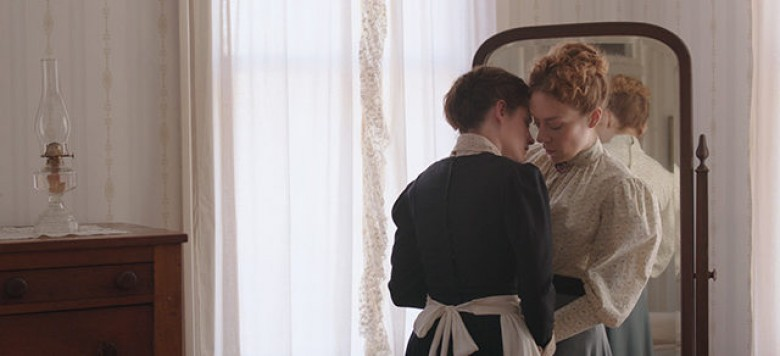“I never wanted anything from you”
The level of intrigue surrounding Andrew and Abby Borden’s murders in 1892 is crazy because it’s only increased since. We’re talking the O.J. Simpson trial of the 19th century: a well-to-do family mutilated in their home with a hatchet, their youngest daughter Lizzie the prime suspect. She wasn’t the only one, but everyone else had an alibi (some so detailed that you wouldn’t be wrong for thinking they were too good). But when you look over the details of the case and the obvious internal familial strife occurring before the infamous night in question, it’s hard to think of anyone else with more motive or better access to have done it. The jury ultimately decided her upbringing was just too proper to believe her capable of such horror.
It remains an unsolved case, one that’s been speculated on for decades to the point of comedic folk rhymes and new legends with varying degrees of embellishment. There are a couple hypotheses based in reality, however, even if the evidence is circumstantial at best. One such theory posits that Lizzie Borden acted out of survival and love. Prone to seizures and forever with an empty arm where male suitors were concerned, it’s thought that she might have been seen as tainting the family’s good name. With clandestine meetings between her father and uncle (John Morse) that may or may not have detailed her hospitalization and the possibility of a sexual relationship with their servant Bridget Sullivan, perhaps Lizzie had no choice but to become a criminal mastermind.
Director Craig William Macneill and screenwriter Bryce Kass have put their own spin on this plausible if unproven conspiracy with Lizzie. It’s a more meditative affair steeped in period aesthetic than you might expect considering the story’s penchant for campy entertainment as recently as 2014 with a Lifetime film and series starring Christina Ricci. The filmmakers instead seek to lend psychological and emotional weight to what happened. They want to show a stifling nature to the Borden home, the male predators within, and the desperation necessary to provide a sense of justice money and stature would never allow via legal measures. This Lizzie (Chloë Sevigny) was pushed into a corner until she was given no choice but to act. She’s rendered hero rather than punch line villain.
Macneill and Kass assume she’s the murderer, but turn the act into self-defense rather than psychopathy. They also flip the victims into antagonists, the other witness into an accomplice. And it comes off as an airtight interpretation of what happened too. We can easily believe Andrew Borden (Jamey Sheridan) was as lecherous as he was frugal, a man of means and stature who used both to prey upon young women in the safety of his own home. It’s also easy to wield the notion that his second wife Abby (Fiona Shaw) was a gold-digger to make her cagey if ambivalent to the abuse happening under that roof. Add allusions to John Morse (Denis O’Hare) being a predator with darkly selfish intentions and Lizzie earns every drop of our sympathy.
Here’s an intelligent woman who understands much more of what’s happening around her than the men in her family would dare to consider. Lizzie sees young Bridget (Kristen Stewart) as someone who could benefit from education and takes to teaching her how to read and write, a friendship blossoming between them. They feel for each other’s wellbeing, their plights dictated by this man as father and employer respectively. His vileness pushes them closer, their compassion sparking a romance that aligns with speculation about Lizzie’s sexuality. We’re watching as they decide when enough is enough. Who did what, however, will remain a secret until a final reveal turning things towards cathartic retribution. The tension ratchets up until a satisfactorily release quiets the demons once and for all.
It’s a well structured unveiling as we hear Lizzie’s screams at the start before rewinding six months to witness Bridget’s arrival. From there time moves at a leisurely pace in order to understand the dynamics at play. There’s also an unknown threat leaving letters at their doorstep with warnings of violence that’s put everyone on his/her guard until actions can’t help but be held under disproportionate scrutiny. Soon this level of policing forces Lizzie to cause real trouble as a means to preserve her sense of autonomy. The worse things she does, however, the worse her punishment becomes. The suspense surrounding this escalation therefore increases to parallel her growing affection for Bridget as we advance towards Abby’s death, Lizzie’s arrest, and the confusion as to who did what.
Only after we’re left wondering if there’s more to the story do we witness Andrew’s demise. It’s surprising too considering the level of trauma exorcised in the act. That’s why Macneill and Kass deserve credit: they’ve given these women the necessary complexity to keep us on edge despite the central crime being a foregone conclusion. How Borden and Sullivan are able to sow doubt through their response to the resulting turmoil becomes meaningful, their motivation and guilt the truly worthwhile payoff. As such Lizzie lives or dies by Sevigny and Stewart’s performances. They must exist with three-dimensionality so we cannot blindly dismiss their visible suffering. To see the swing of the axe as cleansing rather than grotesque was the last thing I expected. And I’m grateful for it.
Score: 7/10
Rating: R | Runtime: 105 minutes | Release Date: September 14th, 2018 (USA)
Studio: Roadside Attractions
Director(s): Craig William Macneill
Writer(s): Bryce Kass

